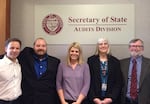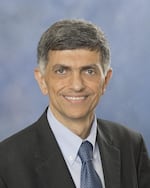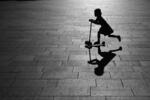
People who've been through foster care systems, like the Oregon Department of Human Services, are more likely to suffer from chronic health conditions later in life, according to a new study.
Bradley W. Parks / OPB
It seems that, every couple years or so, there’s a damning new report related to the Oregon Department of Human Services. But the most recent, year-long audit, which focused on the Office of Child Welfare, may have been the most dispiriting of all. It found that despite years of earlier reports, audits and recommendations, the system is still rife with problems.
The list includes: bad morale and high turnover rates among caseworkers, a shortage of foster parents with no plan to increase the number, no centralized system of reporting for child abuse, and no successful follow-through on many crucial recommendations from earlier audits.
Jamie Ralls, audit manager with the Secretary of State Audits Division, told "Think Out Loud" the planning for this audit was underway for more than a year, well before Dennis Richardson took office — and after the Give Us This Day scandal revealed malfeasance and horrific child abuse in foster care facilities that went unchecked for years before they were closed.

Jamie Ralls, Audit Manager at the Secretary of State’s audit division, is pictured in the middle.
Oregon Audits
Ralls said this audit was like no other. "This was the single most life-changing event I've had in my career of 18 years of auditing."
Going out with caseworkers gave her an understanding of the dedication they have and the stress they endure with roughly double maximum number the caseloads they should have and inadequate resources to do everything that's expected of them.
"It's really a put-out-the-fire kind of a job," Ralls said.
One day she went with a caseworker who was investigating an allegation in a family with six children. One parent, a teacher and several siblings were interviewed but there were still interviews to complete.
"And we got back at the end of the day and I said, 'So you're going to come back tomorrow and wrap this up,'" Ralls recalled. "And she looked at me and said, 'No, I'm going to come back in tomorrow and have 10 more cases on my caseload that I have to go out and start because I have 24 hours to respond.' And I said, 'When are you going to get to this and finish it?' And she said, '9, 10 o'clock at night, bits and pieces here and there ... This is why this job isn't doable.'"
A chronic and overarching problem relates to the internal DHS culture, Ralls said.
"There's a culture there of being afraid if you do something wrong, your head's going to roll; bunkering down, hiding information because they've been slammed and slammed again, she said. "But we really felt that was one of the root causes. There's so much stress and intensity there that they're bullying other people to get the job done, which is not an appropriate way to go."
She said there's no getting around the fact that, fundamentally, the agency is under-resourced.
"They need to have adequate staffing to get things better."
Fariborz Pakseresht began his tenure as the director of the Oregon Department of Human Services in September. The former head, Clyde Saiki, retired after a short tenure leading the agency. And DHS had recently gone through a series of child welfare department directors: Reginald Richardson became acting head after Lois Day was fired, and Lena Alhusseini resigned after seven months, citing systemic problems.

Fariborz Pakseresht is the director of the Oregon Department of Human Services.
Oregon DHS
Pakseresht said the first thing he did to improve the system was to hire a new director of child welfare who was well-respected and had many years in the field.
"One of the things that was pointed out in the audit was the separation that had happened between the field and central office," Pakseresht said. "And Marilyn [Jones] comes from the field. She comes from the field, and she's bringing that connection back together. You are going to begin seeing specific improvements happen in the system within the next few months. All I can say is, hold us accountable."
Pakseresht said the audit consisted of "four primary areas: safety, better use of data, culture and resources." He said out of 24 recommendations in the audit, the agency is already moving forward on 17 of them.
Marilyn Jones, the director of Oregon’s Office of Child Welfare, came from Baker City, where she'd been a child welfare district manager. She agrees with auditor Jaime Ralls:
"We are not adequately resourced. And we are asked to do 100 percent of the work, with sometimes as little as 67 percent of the staff ... As Jaime saw, when she walked side by side ... this work is incredibly difficult. And to think that we can do it without the staff or the tools that they need, is not OK."
But Jones said even without more funding, there are changes that can be made to help take some pressure off of caseworkers.

Marilyn Jones is the director of child welfare for Oregon.
Oregon DHS
"We can start looking at the processes we're asking them to do, and we can start removing those processes, and that's something that we've done since I've started," Jones said. "We're looking at how do we redefine the work so they can get the work done? We're looking at what kind of tools we can give them, such as iPhones, Surface Pros. Making sure that they have the equipment needed, so that when they're out out on a call, they can go ahead and either dictate, or they can go ahead and write something up on their Surface Pros. It's important that we are able to allocate some supports for them in the field."
Critics of the agency are not confident it will be able to respond in a timely enough way to make the difference that's needed now. Richard Wexler directs the National Coalition for Child Protection Reform. He said what stood out to him in the audit was what was missing.
"The biggest problem in Oregon child welfare, the one at the root of all others, is that Oregon is an extreme outlier in terms of tearing children from their parents," Wexler said. "The audit mentions that in one sentence, and then moves on ... It's not that there are too few foster parents, it's that there are too many foster kids."
He said that too often in Oregon — and around the country — neglect is confused with poverty. Children are taken from their homes, he said, when a more appropriate action would be to simply help the family.
"Foster care inherently does so much harm to children," Wexler said. "There are massive national studies showing that in the typical cases, not the horror stories we all know about that make headlines, but when you look at the typical cases, children placed in foster care fare worse in later life even than comparably maltreated children left in their own homes."
Wexler said reform should be aimed squarely at ameliorating the worst harms of poverty.
"Nationwide, 30 percent of American's foster children could be home right now, if their own parents simply had decent housing," he said.
He said things like subsidies for rent or child care and drug rehab for parents would go a long way toward eliminating the harm and expense inherent in the foster care system.
Wexler doesn't accept the idea that there's no money for these programs. "Think of how much it costs to warehouse foster children in hotels," he said. "If they can manage that, they can figure out that, when they go into a home and they see that the problem is poor housing conditions, you help with the housing instead of taking away the child."
He said there are places where these kinds of reforms are working to improve child welfare, citing efforts in Alabama, which were precipitated by a class-action lawsuit years ago.
For her part, auditor Jaime Ralls said the problems at the Office of Child Welfare are deep and wide, and she agrees with Dennis Richardson's assertion that there's a part for every Oregonian to play, whether it's getting involved directly as a foster parent or advocate, or volunteering for a community organization that serves this population.
"It's going to take everyone doing their part," Ralls said. "And we also can't forget about it. So this isn't an audit report we're going to issue and walk away from and not come back to for a year or two years ... we're going to follow this closely."

Young girl on scooter. Photo illustration used with permission.
Marvin Girbig/Flickr
'Think Out Loud' On Oregon's Child Welfare System
You can read all of the articles and listen to the conversations in this series in the right hand column of this page under “Related Stories.”
